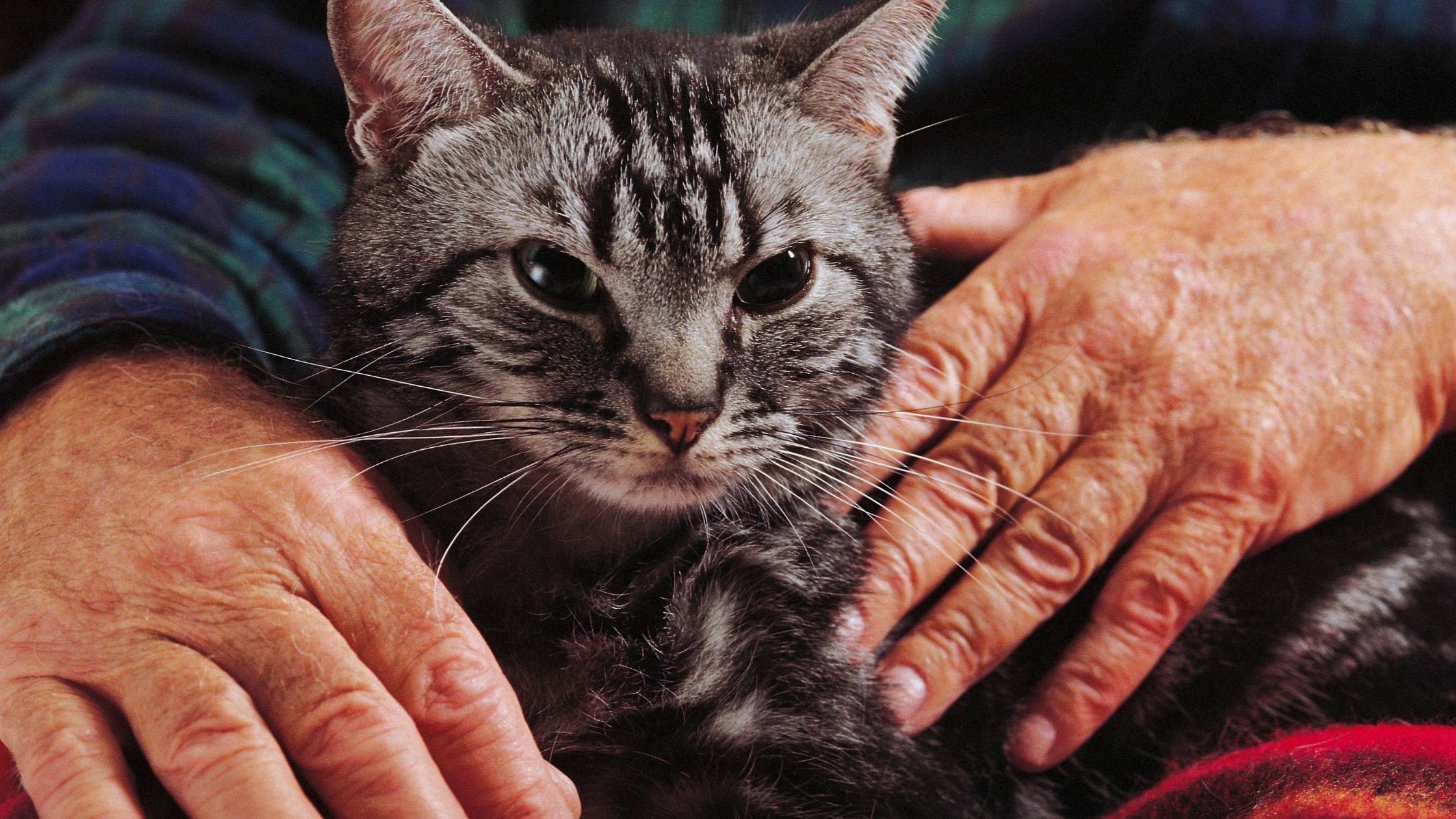People want their furry companions to live a long and healthy life. However, many of us are not sure exactly how long our pets will live. Animals usually have shorter lifespans than humans, so many pet owners are not sure what to expect.
One thing many cat owners wonder about is how long their pet will live. Here is an informative guide to help people learn about how long cats can live, how to extend their lives, etc.

How Long Do Cats Live?
Most cats can live for about 10-15 years. Indoor cats tend to live longer than outdoor cats because they are safer and generally more healthy. Feral cats may have shorter lives than domesticated cats. Other factors like neutering, obesity, disease, etc., can impact a cat’s life expectancy.
Many sources give different answers, but most of them will state that cats can live for 10-15 years. Indoor cats may live up to about 14 years, while an outdoor cat may live for about 7 years. Generally, domesticated cats will live longer than feral cats as well.
If a cat is healthy, happy, and safe, it will live longer. Many pet owners report that their cats live for 16-21 years, and they are usually indoor cats. In rare cases, cats can nearly double their expected lifespan. For instance, Creme Puff is the world’s oldest cat who lived for 38 years.
What Is a Cat’s Age in Human Years?
There are many cat charts to help people learn their cat’s age in human years. Cats mature from the kitten stage quite quickly. They are kittens when they are 0-6 months old. Most cats reach their full size when they are 7 months to 2 years old, which is when they are teenagers.
A cat reaches its “prime” or early adult years when they are 3-6 years old. At that age, they are behaviorally and physically mature, and they will look and feel at their best. A cat reaches their mature years when they are 7-10 years old. The mature years are equal to a human being 40-50 years old.
A cat is officially a senior once they are 11-14 years old, being about 70 years old in human years. They are likely to “slow down” a lot at that age and need more special care. Many cats can become a super senior, which is when a cat is 15 years old or more. Some cats may not show signs that they are this old if they are healthy.
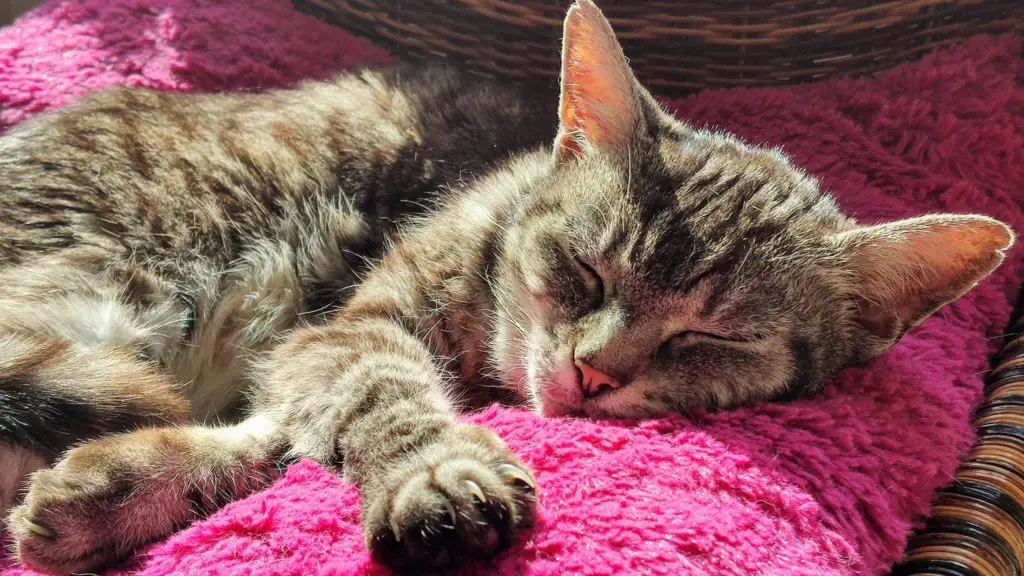
What Factors Affect a Cat’s Life Expectancy?
Certain breeds will live longer than others. For instance, the Burmese cat breed has the longest life expectancy, ranging from 18-25 years old. Other cat breeds like Persians and Siamese also have fairly long life expectancies. However, breeds can also shorten a cat’s lifespan, especially if the cat came from a backyard breeder.
Improper breeding or over breeding for specific traits (folded ears, short legs, etc.) can shorten a cat’s life span. These types of cats can inherit “bad” genes that make them more vulnerable to diseases. Additionally, heterosis usually determines how long a cat lives. Purebred cats have smaller gene pools, so they are more likely to have a genetic disease. Like humans, cats can inherit certain diseases. For instance, a kitten is somewhat likely to develop cancer if their parents or grandparents had cancer.
However, mixed breed cats are generally healthier and live longer because they have wider gene pools. They get fewer genetic diseases because they have diverse genetic backgrounds. Mixed breed cats are stronger against illnesses as well because they are normally healthier than purebred cats.
A cat’s weight can greatly impact how long it will live. Generally, being overweight or obese will shorten any living being’s life expectancy, including cats. Being overweight or obese can be bad for a cat’s joints, bones, muscles, etc., making them less active. Fat cats are also more likely to develop a disease in the heart and lungs. Additionally, being overweight will also increase a cat’s chances of developing diabetes.
However, a cat that is too skinny will not live for a long time either. Cats need proper nutrition for their organs to function and have healthy immune systems. Sudden weight loss in cats can also be a warning sign. For instance, a gradual or sudden loss of weight in cats with unchanging diets could mean that they have a disease. Some diseases that can cause weight loss are cancer, diabetes, etc.
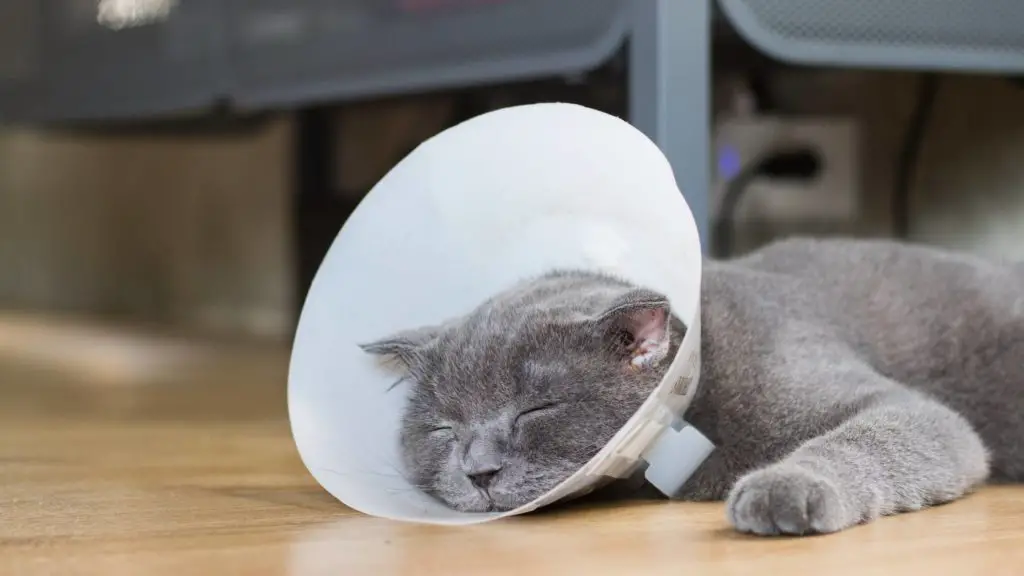
Surprisingly, a cat’s gender can also affect how long it will live. Typically, a female cat will live longer than a male cat. However, it is not a big difference because female cats may only live 1-2 years longer than males. It is probably because male cats prefer to fight, roam, etc., than female cats, so a girl cat will live a bit longer.
Neutering or spaying a cat can also increase their lifespan while preventing unwanted babies. Neutering and spaying cats prevent many diseases to make them live longer. For instance, a spayed cat will have a 0% chance of getting uterine and ovarian cancer. They will also have a very low chance of getting mammary cancer. Neutered cats will not get testicular cancer.
A spayed cat cannot get a uterine infection, a potentially fatal infection if it is not treated. Another benefit is that it will make cats less likely to roam outside the house because they have fewer hormones. Therefore, they will be less likely to fight or get injured outside. It also means they will have a smaller chance of getting infectious diseases.
Vaccinating a cat as recommended by a veterinarian is also another factor. Vaccinations can prevent a cat from getting dangerous diseases and infections. Some diseases are complicated to treat, and young kittens may not survive. Therefore, vaccination can prevent a cat from getting sick in the first place.
Do Indoor Cats Live Longer Than Outdoor Cats?
Yes, indoor cats can live three times longer than outdoor cats. Indoor cats usually have access to better care and healthier food from their owners. Indoor cats will also have more protection from dangerous infections and diseases because they usually have their vaccinations. Additionally, a house cat will be less likely to get into accidents like attacks from animals or car accidents.
Indoor cats are more likely to be obese because they have more food and less space to be active, but they will generally live longer than an outdoor cat. However, indoor cats that are purebred are more likely to have inherited diseases or other illnesses like cancer. Outdoor cats are often mixed breed cats, so they will be less likely to have those problems.
Do Domesticated Cats Live Longer Than Feral Cats?
Yes, a domesticated cat will live longer than a feral, like how an indoor cat will live longer than an outdoor cat. A feral cat is more likely to get into traumas and develop diseases than a domesticated one. Usually, it is because feral cats are outside with little protection. It may also be difficult for a feral cat to feed themselves regularly.
If a person is able to domesticate a feral cat, the cat may not live that long. Even a domesticated outdoor cat would live longer because of shelter, food, vaccinations, etc. For instance, a newly domesticated outdoor cat may get vaccinations and vet care late in life, so they may not be as strong as cats who got vaccinated at a young age.
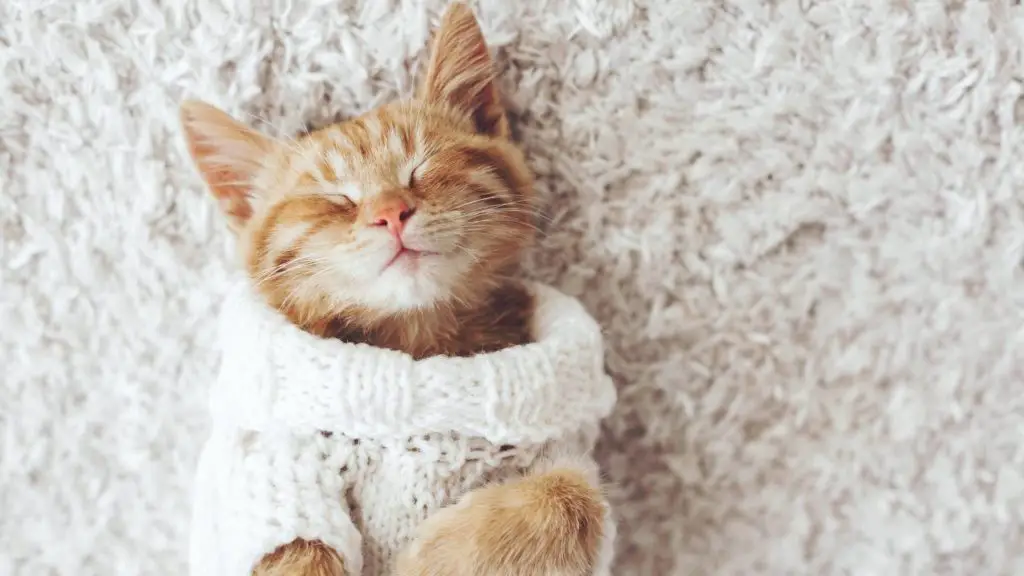
How to Make a Cat Live Longer
Firstly, giving a cat the proper vaccinations is a great way to lengthen its life spans. Vaccinating a cat is a very effective way to prevent a cat from getting sick. Some diseases are very infectious and hard to treat. Some vaccines do not prevent a cat from getting a virus, but they will prevent cats from getting nasty symptoms. Therefore, preventing disease and symptoms is better than dealing with the disease.
Keeping a cat inside the home is one of the best ways to help it live longer. A cat will be less likely to get a life-threatening injury inside its home. An indoor cat will be less likely to run into other aggressive animals inside their homes. Additionally, they will be less likely to develop infections.
However, it is important to remember that a cat may try to escape your home or develop some odd “destructive” habits. Cats were not meant to stay inside a house all day, so their instincts may tell them to find a way out. Therefore, an indoor cat needs lots of mental and physical stimulation like playtime to be happy indoors. Creating an enclosed space for them to lounge outside can help them as well. Very curious cats may wear a body harness and leash to walk outside with their owners.
It is crucial for a cat to stay active, especially if it is an indoor cat. Indoor cats are prone to being lazy because they do not have a lot to do. Lack of activity can cause obesity, which is very preventable. Leave several toys around the house so a cat can play with them whenever they like. Additionally, setting aside 20-30 minutes to play with a cat can help prevent them from being inactive.
Of course, nutrition has a huge impact on a cat’s life. High-quality food and a well-balanced diet are key to long, healthy lives in cats. The exact diet will depend on the pet owner and veterinarian. Some cats eat dry cat food, wet cat food, homemade food, raw food, etc., so it would be best to speak to a veterinarian to see which diet is ideal for a cat. However, vegetarian and vegan diets are usually very bad for cats.
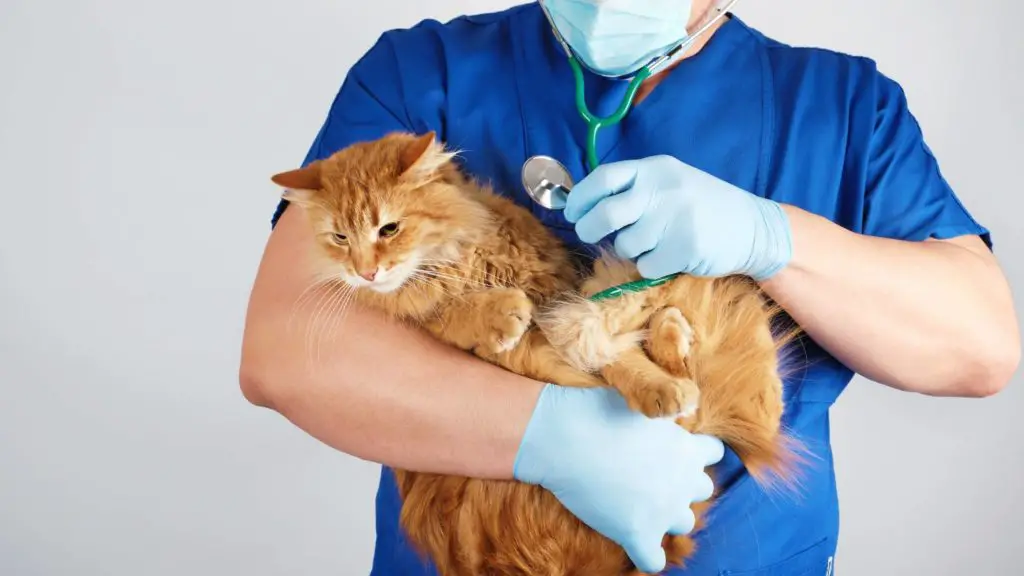
Most cats’ diets should be full of meat because they need lots of protein to stay healthy. Cats are technically omnivores because they can consume vegetables, but cats are at their best when they consume animal protein. Animal protein contains the amino acids that cats need. Look for cat foods that mostly contain animal-based protein. Some proteins cats can benefit from are beef, chicken, turkey, etc.
Cats get a lot of their energy from animal fats. “Good fats” are fats that are naturally in fish and meat. Some examples of healthy fats for cats are Omega 6 and Omega 3 fatty acids. Fats can also help a cat regulate its body temperature. Plus, good fats help them absorb vitamins, like vitamins A and D.
Carbohydrates can also be important for a cat’s health, but that will depend on the cat and veterinarian’s recommendations. Certain grains like rice and wheat are in dry and wet cat foods, so they are usually easy for cats to digest. However, it does not mean that carbs should be a big part of their diet. Moreover, legumes like uncooked soybeans are not good for cats.
Of course, water is crucial for almost every living being. However, cats do not always drink a lot of water naturally. Cats in the wild often have little access to water, so they got most of their hydration from their food. Therefore, offering a cat some wet food is a good way to make sure they stay hydrated.
What Do Cats Normally Die From?
What a cat will normally die from will depend on each cat. For instance, outdoor cats are more likely to die of infections, starvation, car accidents, etc. An outdoor cat may contract a deadly disease at a young age because they did not get vaccinated. Therefore, they will be more likely to pass from an illness because they have little protection.
Indoor cats are more likely to pass from illnesses. These illnesses are usually from cat obesity because indoor cats are more likely to be obese. For instance, an indoor cat may develop heart muscle disease or have severe diabetes complications due to obesity.
If a pet owner unknowingly gives their cat “unhealthy” food, they may pass from that. For instance, many cheap and low-quality cat food provides little nutrition for cats and may give them problems. A cheap cat food brand may contain a lot of salt and additives, which can make a cat dehydrated, leading to digestive and kidney issues.
Older cats will tend to get sicker as they age because they have weaker immune systems. They are also more likely to develop more diseases. Some common diseases older cats can get are arthritis, kidney disease, liver disorder, etc.
How to Tell if a Cat Is Sick or Old
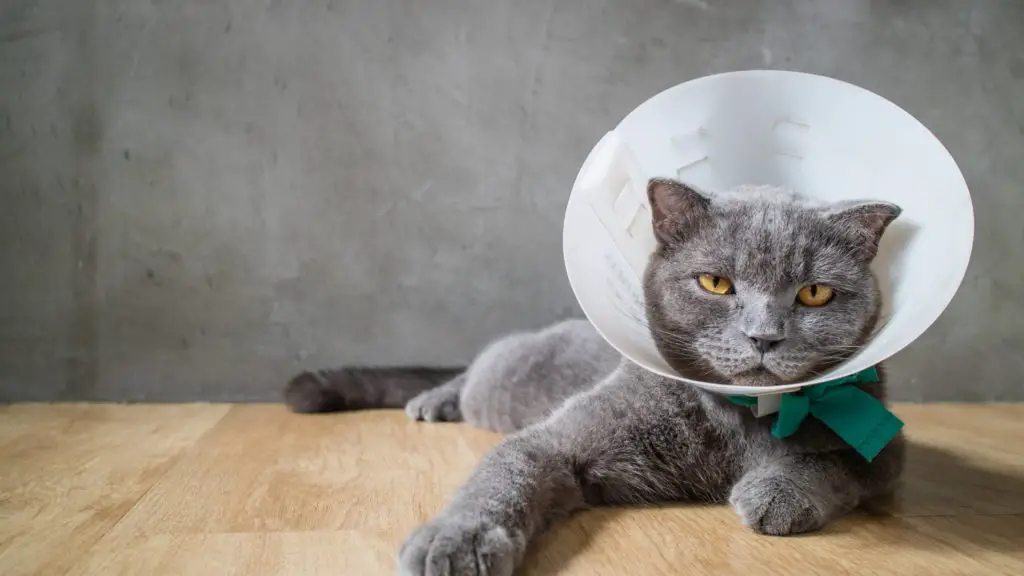
Senior cats are usually less active than younger cats, but it may be difficult for pet owners to tell if they are sick. For instance, a pet owner may not notice that their senior cat is lethargic because they are normally inactive. A good rule of thumb to follow is that if a cat suddenly changes its behavior or appearance, it may be sick. Other symptoms like vomiting, diarrhea, etc., are also signs that a cat is sick.
Changes in appearance are a fast way to know if the cat is sick. For example, a cat that suddenly has bald spots and skin problems like rashes could signal an underlying disease. Discolored or pale gums and unusual lumps on the body are also warning signs. Cloudy and watery eyes may also signal eye issues in older cats. A senior cat may need to go to a vet if its ears are red, swollen, smell bad, have pus, etc.
However, not all illnesses will be visible, so it would be best to watch a senior cat’s behavior. Changes in a cat’s behavior for no particular reason usually mean they are sick. If a cat changes how they act, it could mean they feel pain, anxiety, scared, etc. For instance, if a cat is suddenly very clingy, very vocal and does not want to be alone, it could mean they are in pain and scared.
Another key sign is if a senior cat stops using their litter box. While accidents can happen, it is not normal for a cat to continually urinate or defecate in places it should not. Other potty-related issues that can be a sign that a cat is sick include more frequent use of the litter box, constipation, difficulty in urinating and such.
Older cats tend to eat less than younger cats because they have more relaxed lives. Therefore, they require less food. However, if they suddenly eat less than they normally do, it could mean that they are sick. Loss of appetite is usually the first sign of sickness in many living beings. If a cat keeps dropping food, it could mean that they have dental issues.
All in All
Most cats can live for 10-15 years, depending on the breed and overall health. Cats can live fairly long lives if they get proper care, nutrition, vaccinations, etc. Indoor cats usually live longer lives because they have more protection. Feral and outdoor cats do not live as long because no one takes care of them.
References:
- PetMD, ‘How Long Do Cats Live?’, https://www.petmd.com/blogs/thedailyvet/jcoates/2011/aug/how_long_do_cats_live-11496, Accessed – 10 May 2021
- Guinness World Records, ‘Oldest cat ever’, https://www.guinnessworldrecords.com/world-records/oldest-cat-ever, Accessed – 10 May 2021
- International Cat Care, ‘How to tell your cat’s age in human years’, https://icatcare.org/advice/how-to-tell-your-cats-age-in-human-years/, Accessed – 10 May 2021

